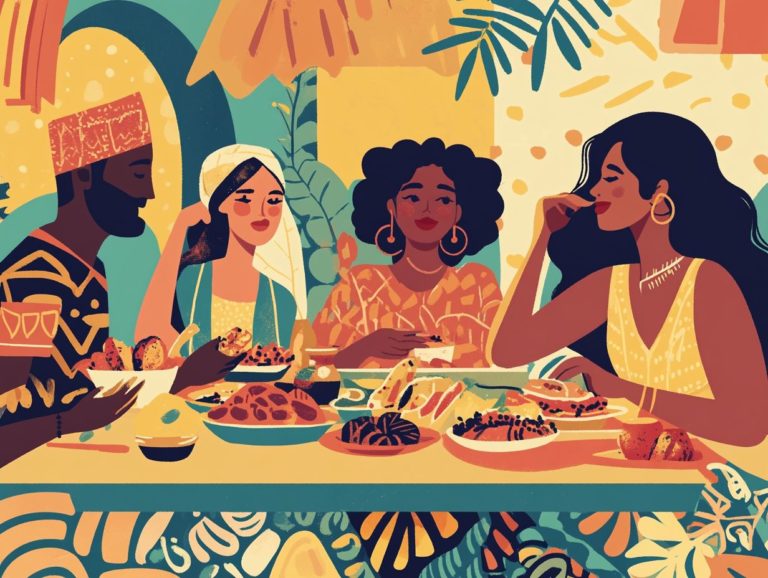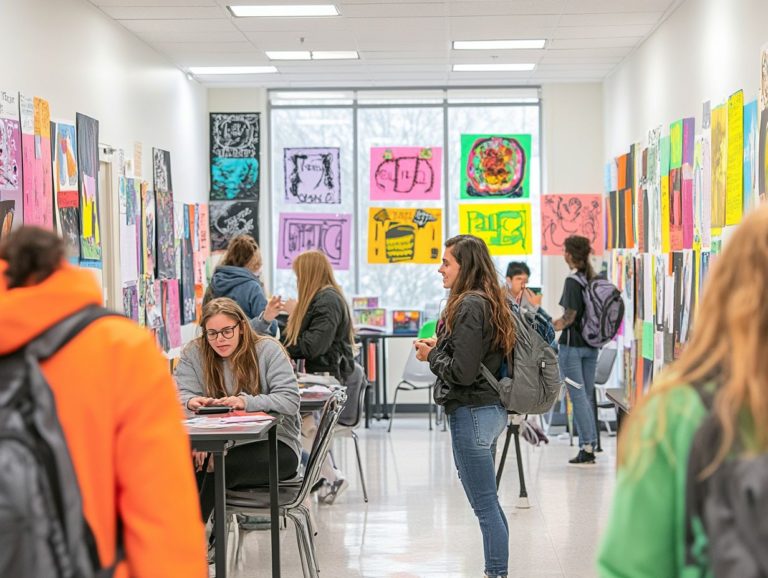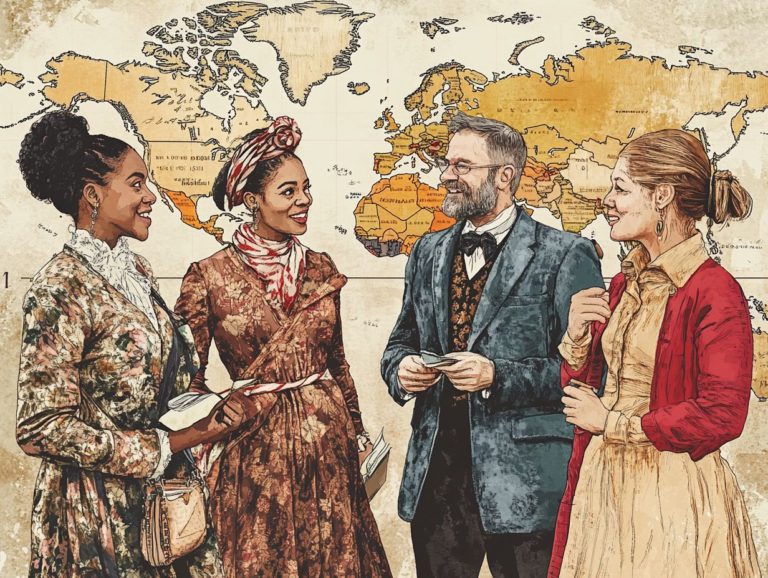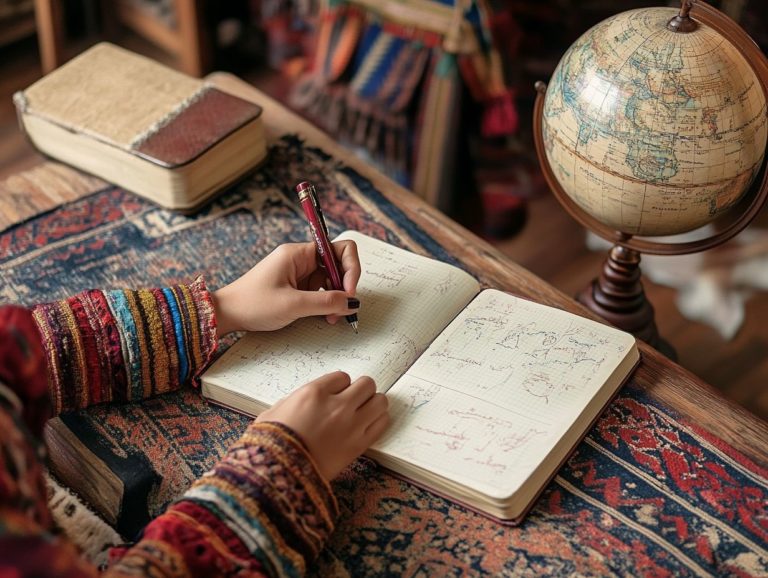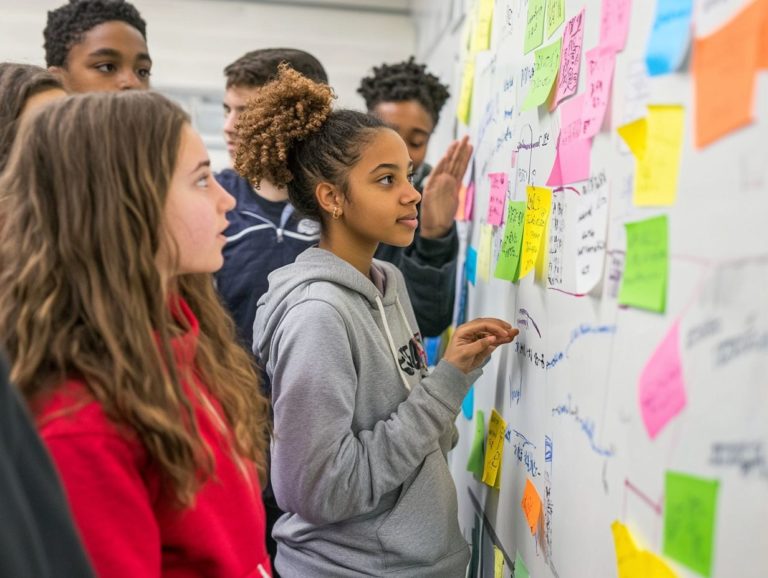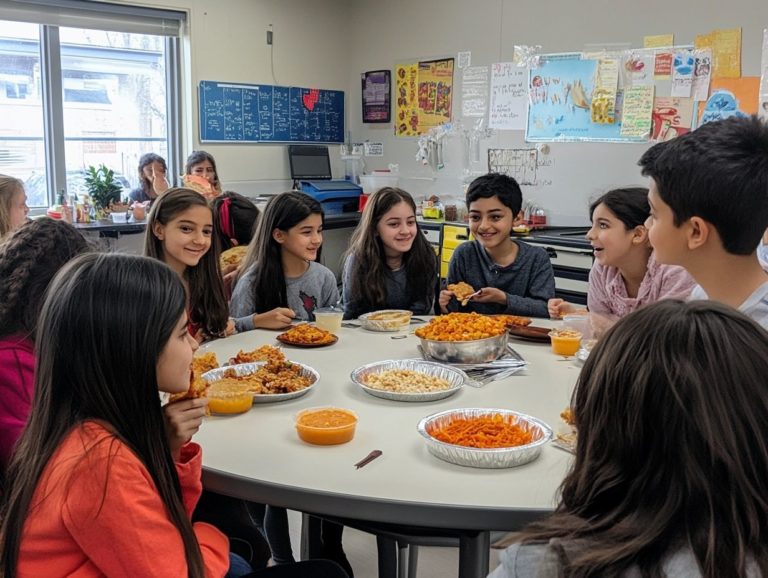Finding Balance: Mixing Cultures in Daily Life
Cultural mixing transcends the mere blending of traditions; it creates a rich tapestry that intertwines diverse perspectives, values, and experiences.
This exploration delves into the essence of cultural mixing. It highlights the benefits it offers such as heightened awareness and tolerance while also addressing the challenges that arise from navigating different customs.
You’ll find practical tips for achieving balance in a multicultural life. We will also explore how this journey impacts raising children.
Embracing diversity is a powerful opportunity for growth! Discover how to thrive in a world where cultures intersect and flourish.
Contents
- Key Takeaways:
- Understanding Cultural Mixing
- Benefits of Embracing Multiple Cultures
- Challenges of Mixing Cultures
- Tips for Finding Balance in a Mixed Culture Life
- How Mixed Cultures Influence Children
- Frequently Asked Questions
- 1. What does it mean to find balance when mixing cultures in daily life?
- 2. How can I maintain my own cultural identity while also embracing other cultures?
- 3. What are some common challenges when it comes to finding balance in mixing cultures?
- 4. How can I educate myself and others about different cultures while finding balance?
- 5. Are there any benefits to mixing cultures in daily life?
- 6. How can I embrace and appreciate the diversity in my community while maintaining a sense of balance?
Key Takeaways:
Here are the key insights to remember:
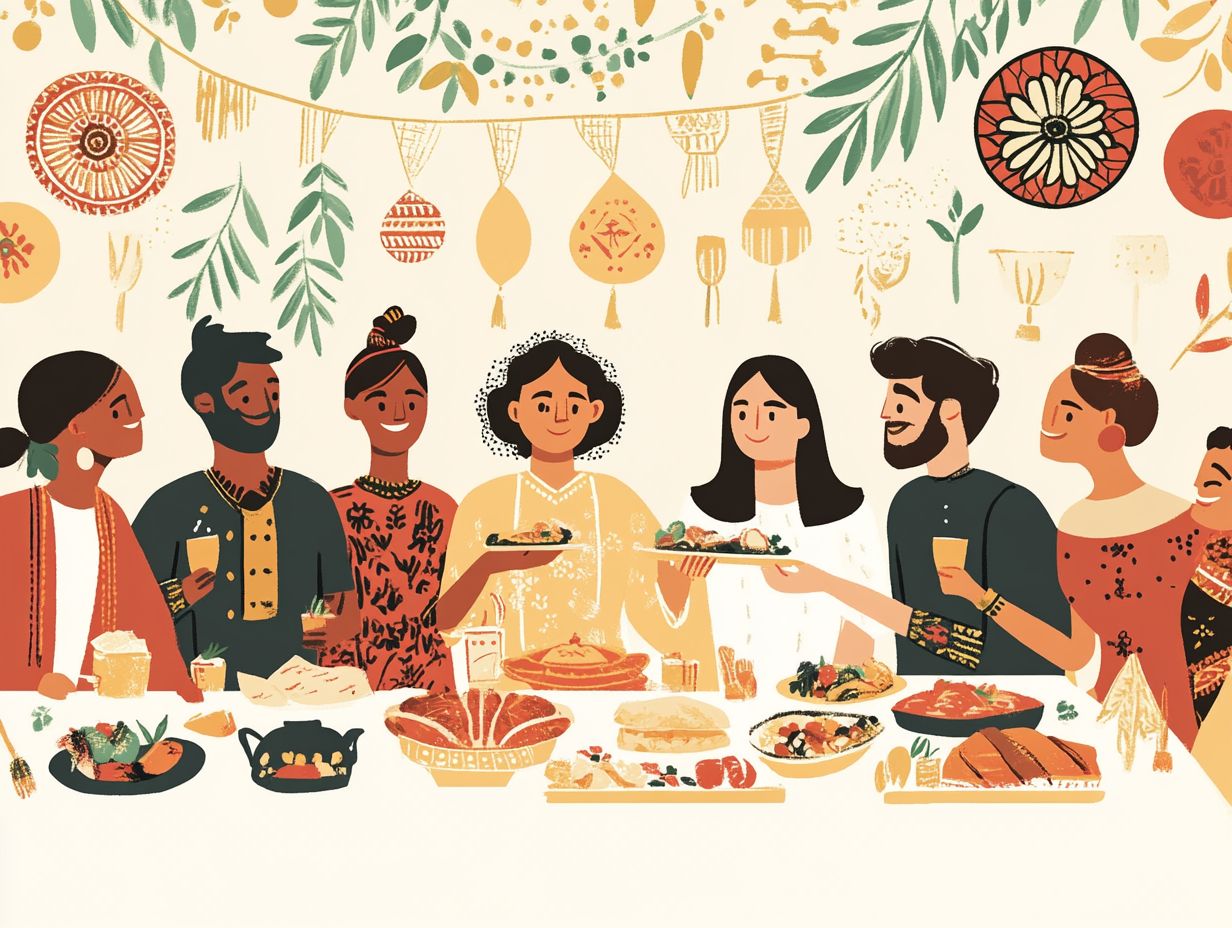
- Cultural mixing means combining different cultural elements, like traditions and beliefs, to create something new.
- Embracing multiple cultures can broaden our perspectives, increase understanding and tolerance, and enrich our daily lives.
- Finding balance in a mixed culture life involves embracing diversity, finding common ground, and navigating cultural differences with open-mindedness and respect.
Understanding Cultural Mixing
Cultural mixing is a fascinating phenomenon that unfolds when diverse cultural traditions and personal values converge, especially in multicultural environments like California, India, and the United States.
It encompasses the essence of group-oriented cultures alongside individual-focused countries, along with the expectations that emerge from these distinctive backgrounds.
This interplay of cultural customs results in rich cultural identities, marked by both contrasts and integration. You find yourself navigating life through a unique worldview, shaped by your experiences and the vibrant tapestry of influences around you.
Defining Cultural Mixing
Cultural mixing is the fascinating process through which various cultural influences and customs come together to forge new identities, shaping how you perceive the world around you.
This intricate blend often seeps into your daily life, transforming everything from traditions and celebrations to personal interactions and modes of self-expression.
As you encounter diverse customs, your understanding of identity evolves. This allows you to adopt and adapt practices that resonate with your own experiences.
Exposure to different cultural backgrounds not only enriches your personal growth but also nurtures empathy and respect, bridging gaps between communities.
In this dynamic cultural landscape, effective communication becomes essential, enabling you to share stories, beliefs, and values, ultimately enriching your life and broadening your perspective.
Benefits of Embracing Multiple Cultures
Embracing multiple cultures allows you to cultivate a deep appreciation and awareness that enriches your life with diverse perspectives.
This journey not only enhances your understanding of the world but also nurtures healthy relationships and supports emotional processing both vital components for your personal growth and resilience.
Increased Cultural Awareness and Tolerance
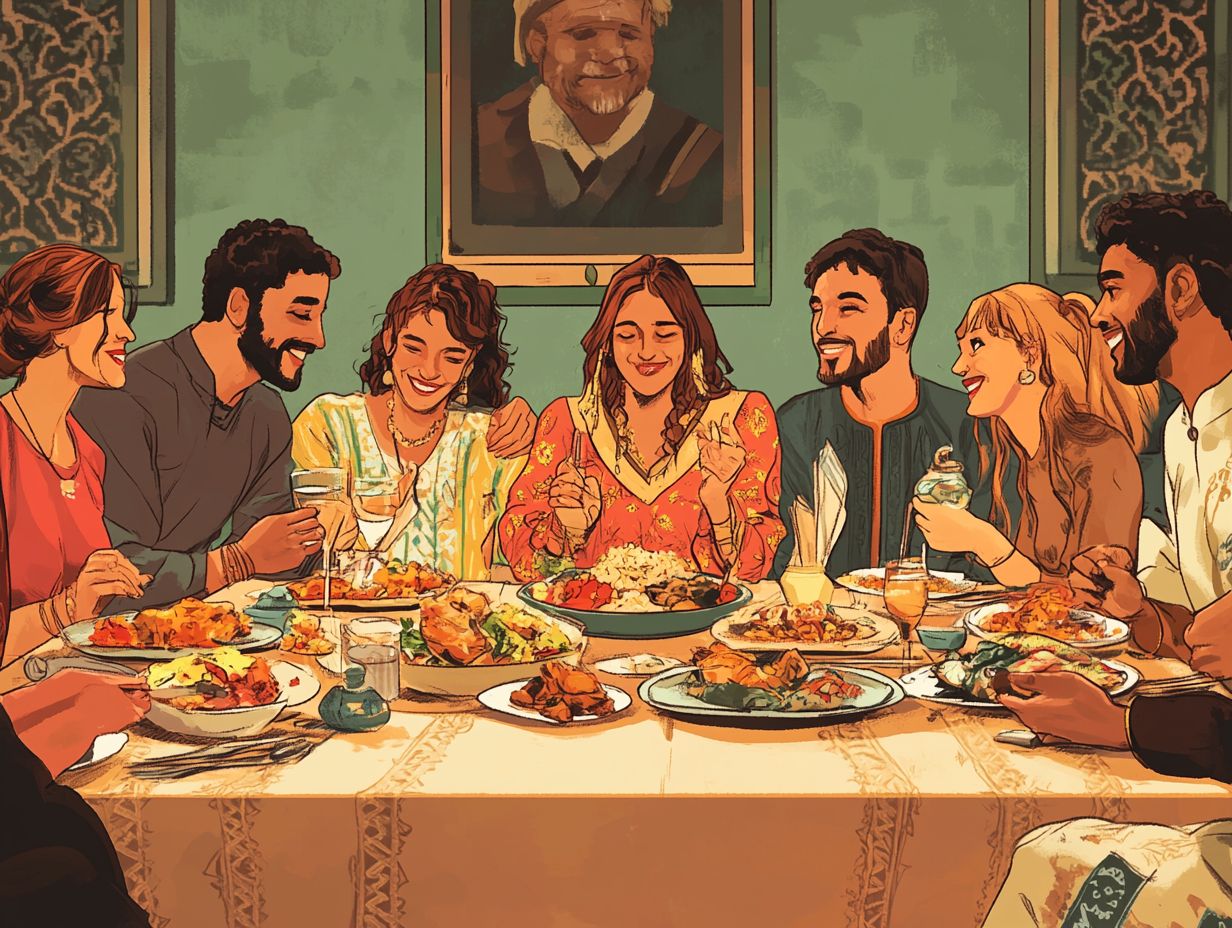
Increased cultural awareness and tolerance emerge when you actively engage with and appreciate cultural differences. This enhances your communication skills and deepens your understanding of diverse perspectives.
When you immerse yourself in conversations with individuals from various backgrounds whether through travel, community events, or even virtual interactions you uncover unique insights and traditions that enrich your own life.
For instance, participating in cultural exchange programs, like student exchanges or international festivals, offers you firsthand experiences of diverse traditions, cultivating a sense of empathy and appreciation.
Through effective communication, you can bridge misunderstandings and dismantle stereotypes. This paves the way for meaningful dialogues that encourage mutual respect.
These interactions not only broaden your personal horizons but also contribute to building inclusive communities where differences are celebrated rather than simply tolerated.
Challenges of Mixing Cultures
Blending cultures can offer a wealth of advantages, but it also brings its own set of distinct challenges. You may find yourself navigating varying cultural norms and expectations, as well as potential language barriers, which can complicate personal interactions.
Navigating cultural values and customs requires cultural sensitivity. It’s important to understand and respect the differences that arise from diverse backgrounds.
This journey isn t just about recognizing these contrasts; it s about actively engaging in open dialogue to bridge the gaps between generations and practices. You can develop strategies like asking insightful questions and seeking clarity to truly grasp the perspectives of others.
Embracing shared experiences and traditions cultivates a sense of unity, even amidst the rich tapestry of diversity.
By promoting empathy and patience, you can help families flourish in a multicultural environment, enhancing relationships and creating harmonious dynamics that celebrate both individuality and a collective identity.
Tips for Finding Balance in a Mixed Culture Life
Finding balance in a mixed culture life requires you to embrace diversity while also setting healthy boundaries. This approach enables you to cultivate relationships rooted in mutual respect and a deep understanding of cultural differences.
Embracing Diversity and Finding Common Ground
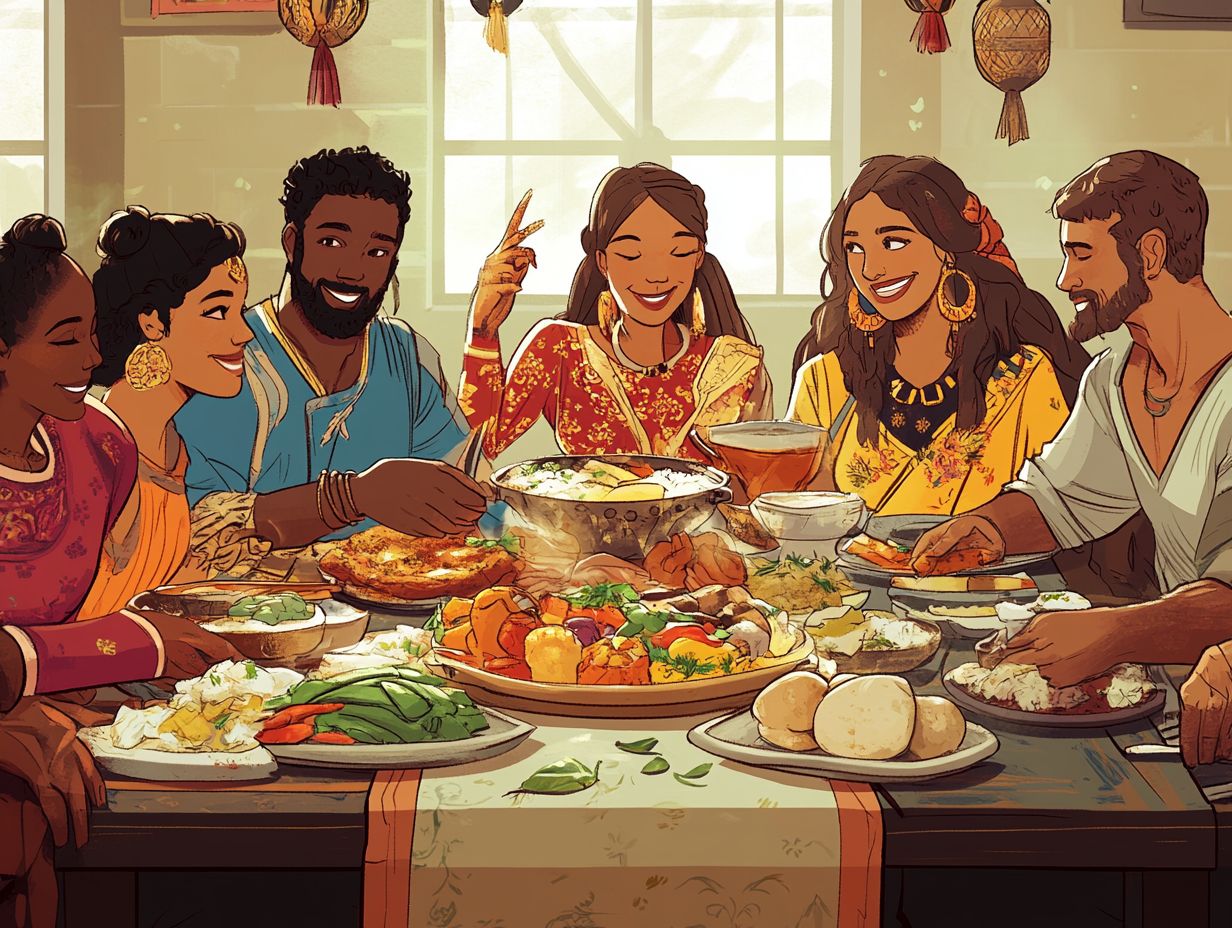
Embracing diversity and discovering common ground is essential for cultivating cultural harmony. This is enriched by your unique journey of self-discovery and the establishment of meaningful cultural connections.
When you step into unfamiliar territories be it through travel, education, or engaging with your community you often encounter perspectives and traditions that may be vastly different from your own. Consider Maria, a young woman who moved from a small town to a bustling metropolitan city. Initially feeling overwhelmed, she soon discovered local festivals brimming with music and cuisine from diverse cultures. By participating in these vibrant events, she formed friendships with individuals whose backgrounds were unlike hers.
Consider James, a recent immigrant who shared his culinary expertise by hosting cooking classes, offering others a firsthand experience of his rich heritage. These interactions foster mutual respect and cultivate a deeper understanding of each other s backgrounds, ultimately enriching both personal growth and community cohesion.
How Mixed Cultures Influence Children
The influence of mixed cultures on children is significant, especially for those being raised in biracial environments. As they grow, they navigate their distinctive cultural identities, shaped by the rich tapestry of diverse family backgrounds and cultural influences that surround them.
Raising Multicultural Children
Raising multicultural children requires cultivating a robust sense of cultural identity while skillfully navigating the diverse influences of family dynamics and cultural expectations.
As you embark on this journey, it’s essential to weave diverse cultural narratives into everyday life, ensuring that your children appreciate and celebrate their unique backgrounds. They will benefit immensely from the stories, traditions, and practices from each side of their heritage, helping them develop a well-rounded worldview.
Emotional processing plays a crucial role in this experience, enabling them to articulate their feelings about their mixed heritage. By encouraging open conversations about identity, heritage, and the challenges that may arise, you enable them to embrace their multiculturalism with confidence and understanding.
Frequently Asked Questions
What are some ways to raise multicultural children?
Encourage open conversations about identity and heritage, celebrate diverse cultural narratives, and engage in community events that highlight different traditions.
1. What does it mean to find balance when mixing cultures in daily life?
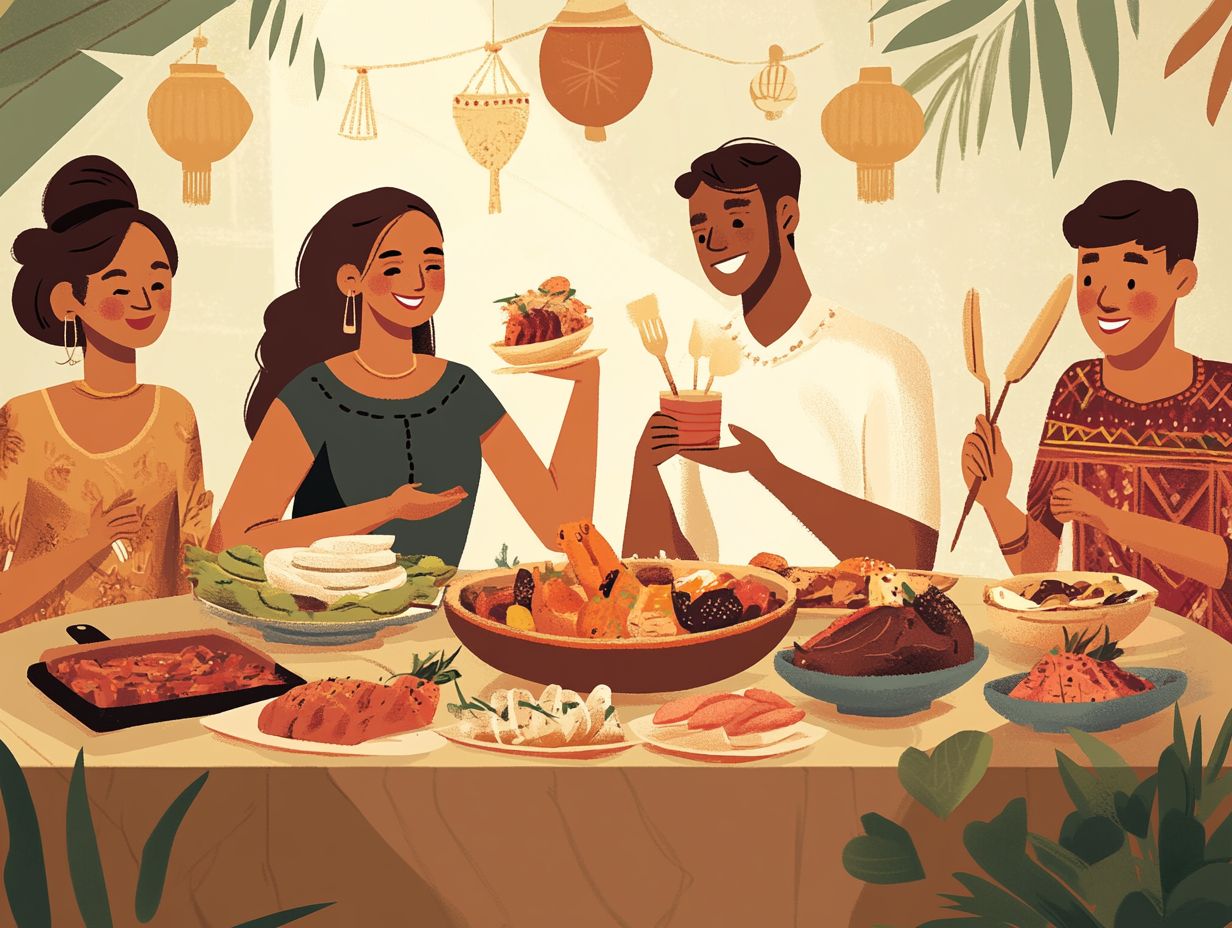
Finding balance when mixing cultures means blending various influences in a way that feels genuine. Learning how to balance your culture with local practices and recognizing both similarities and differences is key.
2. How can I maintain my own cultural identity while also embracing other cultures?
To maintain your cultural identity, engage actively with other cultures while staying true to your values. Balance is crucial between adapting and remaining authentic.
3. What are some common challenges when it comes to finding balance in mixing cultures?
Mixing cultures often presents challenges like different communication styles and conflicts between values. Finding belonging in a diverse community can also be tough.
4. How can I educate myself and others about different cultures while finding balance?
Educating yourself about different cultures helps you find balance. Read books, watch documentaries, and attend events to learn and connect.
5. Are there any benefits to mixing cultures in daily life?
Mixing cultures offers many benefits. It broadens perspectives, fosters understanding, and creates a more inclusive community with unique experiences.
6. How can I embrace and appreciate the diversity in my community while maintaining a sense of balance?
To embrace diversity and maintain balance, seek opportunities to learn about different cultures. Stay open-minded and find common ground with others.

